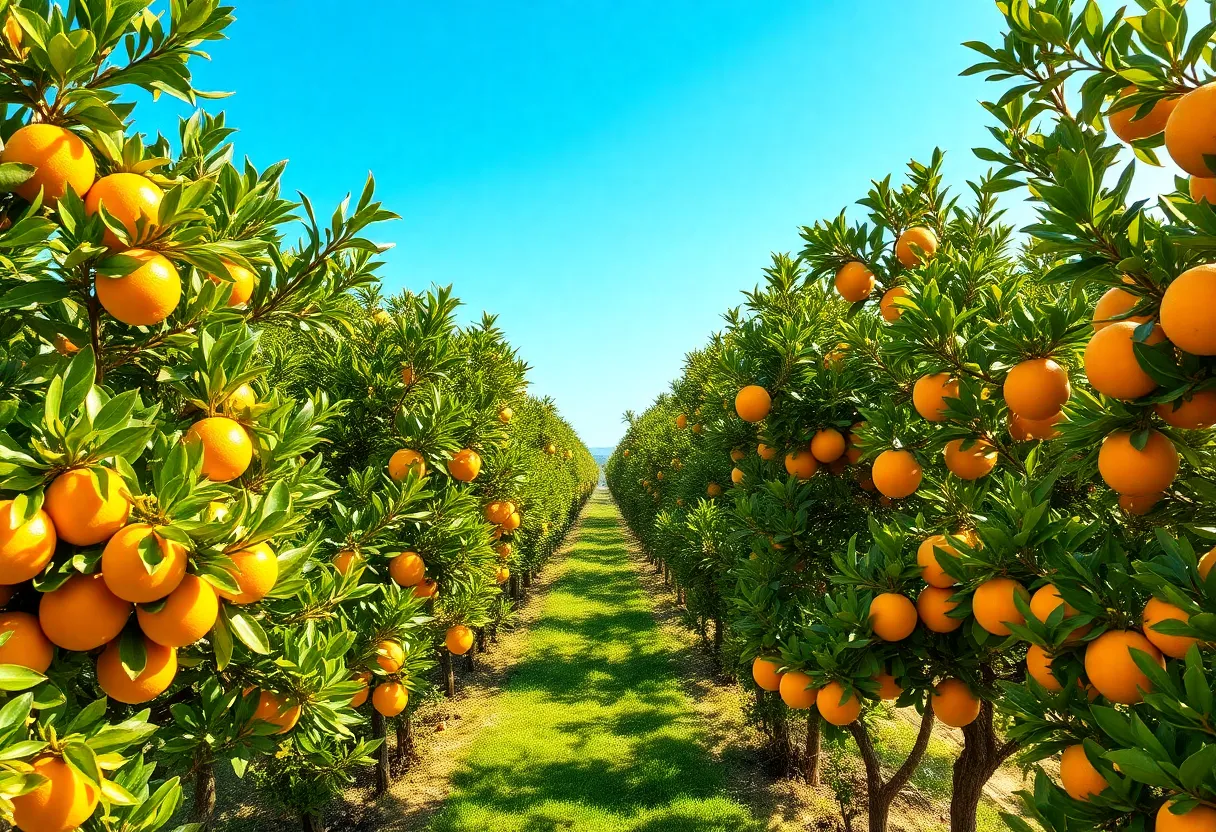News Summary
California has intensified its quarantine measures against citrus greening disease, known as Huanglongbing (HLB), following new case identifications in Orange, Riverside, and San Diego counties. The expanded quarantine includes areas like Foothill Ranch and Mission Viejo. The initiative aims to safeguard the state’s citrus industry, preventing disease spread caused by the Asian citrus psyllid, while public awareness campaigns encourage compliance with guidelines to minimize infection risks.
California has expanded its quarantine measures for citrus greening disease, also known as Huanglongbing (HLB), as the USDA Animal and Plant Health Inspection Service (APHIS) in collaboration with the California Department of Food and Agriculture (CDFA) identified new cases in residential plant tissues across several counties. The goal of this expanded quarantine is to protect citrus crops and contain the spread of the disease that poses a significant threat to California’s multi-billion dollar citrus industry.
Recent findings of HLB were reported in Orange, Riverside, and San Diego counties. The newly expanded quarantine now covers specific areas including Foothill Ranch and Mission Viejo in Orange County, Riverside in Riverside County, and Valley Center in San Diego County. In addition, existing quarantine areas have also been updated to include regions such as Oceanside, Rancho Bernardo, and Valley Center.
Citrus greening disease causes severe damage to citrus trees, resulting in decreased fruit quality, premature fruit drop, and tree decline. The disease is primarily spread by the Asian citrus psyllid, an insect that carries the bacteria responsible for HLB. Consequently, the newly expanded quarantine restricts the movement of citrus plants, related materials, and potentially infected trees within designated areas to prevent the disease from spreading to uninfected zones.
The response to the disease includes public awareness initiatives urging residents and agricultural operators in the affected areas to adhere to established guidelines to minimize the risk of HLB transmission. These guidelines notably include prohibitions on sharing backyard fruit or moving citrus trees outside the quarantine zone. Infected trees are characterized by mottled yellow leaves and asymmetrical fruit that is unsuitable for consumption, with the disease often leading to the death of these trees.
The ongoing battle against HLB is critical for safeguarding the citrus sector in California, which plays a pivotal role in the state’s agricultural economy. Since the establishment of initial quarantine areas in 2012, authorities have successfully removed over 8,600 infected trees across various counties, showcasing the effectiveness of the quarantine measures. Ongoing management practices are being explored, including biological control methods, development of resistant rootstocks, and tools for early disease detection.
As the latest quarantines were implemented following reports of HLB findings in a mandarin tree during inspections in Fallbrook, local authorities will actively treat affected trees to combat the spread of the disease. Additionally, they will keep citrus growers and nurseries well-informed about the ongoing situation and necessary precautions.
The importance of public cooperation and heightened awareness cannot be overstated in the effort to control the spread of citrus greening disease. Strong collaborative measures among residents and agricultural professionals are essential to ensure the health and sustainability of California’s citrus production amidst this escalating threat.
Deeper Dive: News & Info About This Topic
HERE Resources
Additional Resources
- FreshPlaza: California expands citrus greening quarantine zones
- Wikipedia: Huanglongbing
- AgNet West: APHIS, CDFA expand citrus greening quarantine area
- Google Search: Huanglongbing citrus disease
- Los Angeles Times: Citrus greening metaphor for Southern California
- Google Scholar: citrus greening HLB California
- Fresh Fruit Portal: APHIS expands citrus greening quarantined area in California
- Encyclopedia Britannica: Huanglongbing

Author: STAFF HERE MISSION VIEJO WRITER
The MISSION VIEJO STAFF WRITER represents the experienced team at HEREMissionViejo.com, your go-to source for actionable local news and information in Mission Viejo, Orange County, and beyond. Specializing in "news you can use," we cover essential topics like product reviews for personal and business needs, local business directories, politics, real estate trends, neighborhood insights, and state news affecting the area—with deep expertise drawn from years of dedicated reporting and strong community input, including local press releases and business updates. We deliver top reporting on high-value events such as Oso Fit 5K Fun Run and Community Health Fair, Walk Against Drugs & Community Fair, and National Night Out. Our coverage extends to key organizations like the Mission Viejo Chamber of Commerce and Providence Mission Hospital Mission Viejo, plus leading businesses in retail and education that power the local economy such as The Shops at Mission Viejo, Capistrano Unified School District, and Amazon Delivery Station. As part of the broader HERE network, including HEREAnaheim.com, HEREBeverlyHills.com, HERECostaMesa.com, HERECoronado.com, HEREHollywood.com, HEREHuntingtonBeach.com, HERELongBeach.com, HERELosAngeles.com, HERESanDiego.com, and HERESantaAna.com, we provide comprehensive, credible insights into California's dynamic landscape.


